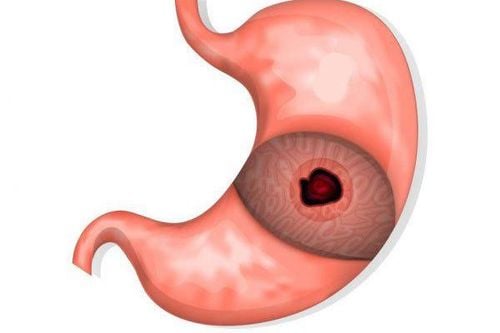This is an automatically translated article.
Men in their 70s with overall health care can reduce the risk of developing many diseases. So how to take care of a 70-year-old man, what to pay attention to about health issues?
1. Why need preventive health care for men aged 70?
Some men have the misconception that if they still live and work well, they don't need to see a doctor. However, regular check-ups and health checks are important to help screen many diseases in their early stages or before they appear.
Therefore, you should have regular health check-ups, even if you still feel healthy. The purpose of medical examination is to:
Check for health problems; Assess the risk of certain diseases in the future; Get advice on a healthy, scientific lifestyle; Update vaccination schedule. Regular check-ups can help you avoid future problems. For example, the only way to know if you have high blood pressure is to have your blood pressure checked regularly. Besides, high cholesterol or high blood sugar often causes no symptoms in the early stages (making you think you are healthy) but can be detected easily with a blood test.

Kiểm tra sức khỏe định kỳ là cách chăm sóc đàn ông trên 70 tuổi rất cần thiết
2. Guidelines for screening for men over 70 years old
The most important thing in preventive health care for men over 70 years of age is to perform regular screening:
Screening ultrasound for abdominal aortic aneurysm : For people aged 65-75 years old and a former smoker medicine; Check blood pressure: At least every 2 years. If your systolic blood pressure is between 120 and 139 mmHg or your diastolic blood pressure is between 80 and 89 mmHg, you should have your blood pressure checked every year and get advice from your doctor about ways to lower your blood pressure. If you have heart disease, diabetes, kidney disease, or other medical conditions, you may need to have your blood pressure checked more often, at least once a year; Check cholesterol and heart disease: If your cholesterol level is normal, get it checked at least every 5 years. If you have high cholesterol, heart disease, diabetes, kidney disease, or some other medical condition, you may need to be checked more often; Screening for colorectal cancer: Some necessary tests are: fecal occult blood test or stool immunohistochemistry test annually, stool sDNA-FIT test every 1-3 years, colonoscopy sigmoidoscopy every 5 years (or every 10 years with annual stool immunohistochemistry), CT colonography (virtual colonoscopy) every 5 years, colonoscopy every 10 years. You may need more frequent colonoscopy if you have risk factors for colorectal cancer such as colitis, a personal or family history of colon or rectal cancer, colon polyps, etc.; Check your teeth: You should go to the doctor and clean your teeth 1-2 times a year. The dentist will advise you on the time of follow-up visits; Diabetes screening: If you are over 65 years old and in good health, you should be screened for diabetes every 3 years. If you are overweight and have other risk factors for diabetes, your doctor may advise you on a more frequent follow-up visit; Eye exam: You should have an eye exam every 1-2 years. If you have diabetes, you should have an eye exam at least once a year; Hearing test: If you have symptoms of hearing loss; Lung cancer screening: You should have an annual lung cancer screening with low-dose computed tomography if: Between the ages of 50 and 80, have a 20-year history of smoking, and currently smoke or have quit smoking for less than 15 years; Screening for infectious diseases: Hepatitis C, syphilis, HIV, chlamydia,...; Osteoporosis Screening: If you have risk factors for osteoporosis, you should get screened for osteoporosis. Risk factors include long-term steroid use, smoking, low weight, heavy alcohol use, fractures after age 5, or a family history of osteoporosis. Men age 70 and older should consider having a bone density test; Screening for prostate cancer; Skin testing: People at high risk for skin cancer may be offered a skin test. The risk of the disease is high in people who have had skin cancer in the past, have a close relative with skin cancer or have a weakened immune system; Full health check: Check weight, height, body mass index (BMI). During the exam, your doctor may ask you questions about the medications you are taking, your drinking and smoking habits, your diet and exercise routine, whether you are worried or depressed, how you feel. Have you ever fallen...

Đàn ông 70 tuổi cần duy trì chế độ ăn uống lành mạnh
3. Health consultation and vaccination
When learning about how to take care of a 70-year-old man, you also need to pay attention to the following issues:
Health advice: About the habit of using tobacco, alcohol, maintaining a healthy diet and active physical activity; Vaccinations: Pneumococcal vaccine, annual flu shot, booster shot for tetanus - diphtheria every 10 years, shingles vaccine,... Men age 70 can reduce the risk of developing develop many dangerous diseases by changing lifestyle habits, injecting adequate doses of vaccines and health screening as recommended. You should strictly follow the above tips for good health and mental clarity.
Periodic health check-ups help to detect diseases early, so that there are treatment plans for optimal results. Currently, Vinmec International General Hospital has general health checkup packages suitable for each age, gender and individual needs of customers with a reasonable price policy.
Results of the patient's examination will be returned to the home. After receiving the results of the general health examination, if you detect diseases that require intensive examination and treatment, you can use services from other specialties at the Hospital with quality treatment and services. outstanding customer service.
Please dial HOTLINE for more information or register for an appointment HERE. Download MyVinmec app to make appointments faster and to manage your bookings easily.
References: healthline.com, medlineplus.gov/ency/article, prevention.va.gov













